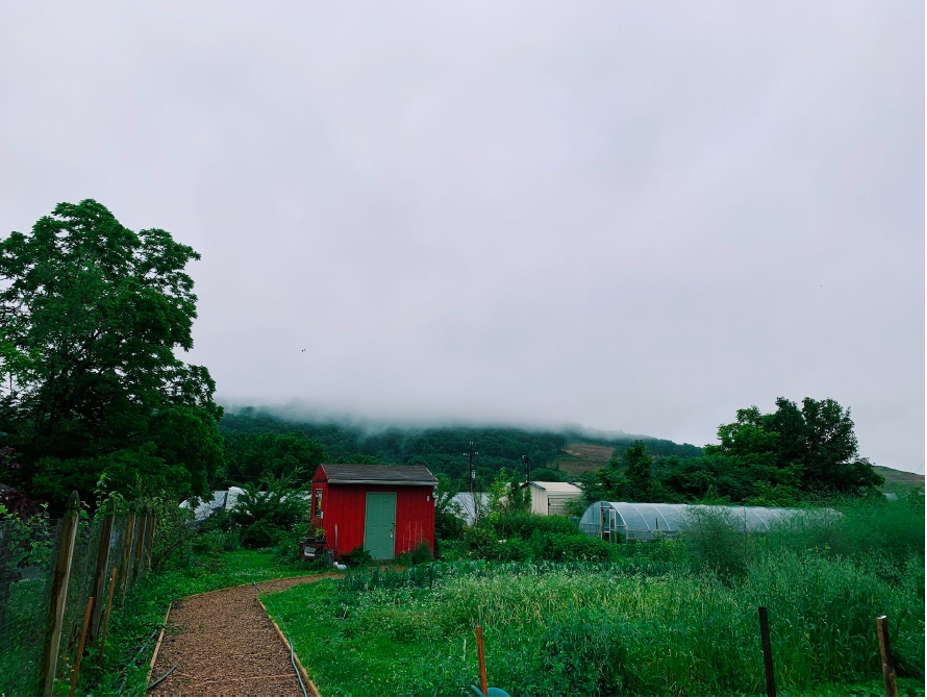
This profile is about the Easton Urban Farm, located on the South Side of Easton, PA. The farm is a part of the Easton Area Neighborhood Center, a non-profit that helps to combat hunger and poverty. Through an interview with the farm manager, Mark Reid, and a reflective conversation after, we learn about the function of the farm within the Easton community, how the community is involved with the farm, and the farm’s connection to the neighboring food pantry.
We discuss the difficulty of funding for urban farm and community garden programs, and Mark offers some future visions for where he might see the farm heading in the coming years. Mark also shares how coronavirus impacted both the farm and the pantry. We found this part of the discussion to be especially important in understanding how our current food system perpetuates unequal food access through fragile distribution systems.
Through the stories of some Easton residents and their cultural roots we also highlight some of the inconsistencies in the power of the community to decide how the urban farm functions for them, and Mark offers some exciting ideas for future programs aimed at increasing direct community involvement.
We end the episode by talking about the potential political power that Food Banks have in terms of addressing poverty, and by proxy, hunger. We hope that this profile shows a community program that is unique and successful in its farm to pantry model that fights hunger, food waste, and engages the community. We also hope this profile informs other communities as a model for urban farming and also inspires political action with these programs. To learn more please visit the Easton Urban Farm’s website and or Instagram page and consider volunteering your time to provide fresh vegetables for the community.
I liked the birds sounds in the beginning of the podcast when the hosts were talking, if I wasn’t in the library basement I wouldn’t have noticed it! I also enjoyed how interactive the podcast was and interviewing Mark was very effective. I learned a lot from the podcast, I didn’t know that the East Urban Farm as well as similar places needed to apply for grants every year, I would have thought that it would have had more secure funding as it should. I also learned that Lafayette has volunteered here and that the farm is going to start an internship program!
I loved the flow of this podcast! The way you used Mark as the source for most of your information was really well set up. Like Rachel mentioned, I was surprised to learn that food banks and community farms aren’t as financially supported as I would have thought. I also hadn’t considered how COVID would have impacted food banks in the ways that you discussed, and I liked how you did a brief summary with concluding thoughts at the end of your podcast.
I really enjoyed it! I gained a much deeper understanding of how the Easton Urban Farm functions and impacts the Easton community. I liked that you incorporated the interview with the farm manager. The nature sounds added to the ambiance and made me feel like I was at the farm! I was surprised by the significance of the economic challenges the farm faced and how grant writing could be a full-time job. I also enjoyed hearing about the future plans for the farm. Prior to listening, I didn’t consider the impact social media, farm interns, and community involvement could have on the success of the farm. I also appreciated that after the interview you highlighted some of the most important points, as it provided clear notes the listener should take away from the podcast.
I loved the ambience in the background. It really made me feel like I was in a garden. I definitely learned a lot about the farm and the processes and steps that they take each year to make sure that they can farm good food. I also liked the part where you talked about whether or not the gate adds a barrier to the community, as that was something I hadn’t even thought of. Overall, I really enjoyed listening to this podcast.